Deck 16: Biochemistry and Biotechnology
Question
Question
Question
Question
Question
Question
Question
Question
Question
Question
Question
Question
Question
Question
Question
Question
Question
Question
Question
Question
Question
Question
Question
Question
Question
Question
Question
Question
Question
Question
Question
Question
Question
Question
Question
Question
Question
Question
Question
Question
Question
Question
Question
Question
Question
Question
Question
Question
Question
Question
Question
Question
Question
Question
Question
Question
Question
Question
Question
Question
Question
Question
Question
Question
Question
Question
Question
Question
Question
Question
Question

Unlock Deck
Sign up to unlock the cards in this deck!
Unlock Deck
Unlock Deck
1/71
Play
Full screen (f)
Deck 16: Biochemistry and Biotechnology
1
Identify the most accurate statement about triglycerides.
A) Triglycerides are made from a combination of fatty acids and glycerol.
B) Unsaturated triglycerides will be liquids at room temperature.
C) Triglycerides can act as moisturizers to prevent dryness.
D) Fats and oils serve as insulation for the body.
E) All of these are correct.
A) Triglycerides are made from a combination of fatty acids and glycerol.
B) Unsaturated triglycerides will be liquids at room temperature.
C) Triglycerides can act as moisturizers to prevent dryness.
D) Fats and oils serve as insulation for the body.
E) All of these are correct.
All of these are correct.
2
Which of these saturated fatty acids can only be extracted from peanuts?
A) Myristic acid
B) Palmitic acid
C) Arachidic acid
D) Stearic acid
E) Linoleic acid
A) Myristic acid
B) Palmitic acid
C) Arachidic acid
D) Stearic acid
E) Linoleic acid
Arachidic acid
3
Which of these molecules is/are the primary means for long-term energy storage?
A) Lipids
B) Nucleic acids
C) Carbohydrates
D) Proteins
E) Plasma
A) Lipids
B) Nucleic acids
C) Carbohydrates
D) Proteins
E) Plasma
Lipids
4
Which of these is a carbohydrate?
A) Cellulose
B) Glucose
C) Fructose
D) Lactose
E) All of these
A) Cellulose
B) Glucose
C) Fructose
D) Lactose
E) All of these

Unlock Deck
Unlock for access to all 71 flashcards in this deck.
Unlock Deck
k this deck
5
Which of these substances is classified as a saturated triglyceride?
A) Glucose
B) Fat
C) Water
D) Cellulose
E) Starch
A) Glucose
B) Fat
C) Water
D) Cellulose
E) Starch

Unlock Deck
Unlock for access to all 71 flashcards in this deck.
Unlock Deck
k this deck
6
Which of these triglycerides will be a liquid at room temperature?
I.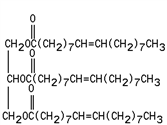
II.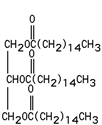
III.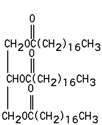
IV.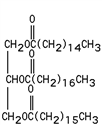
A) I only
B) II
C) III
D) IV
E) None of these
I.

II.

III.

IV.

A) I only
B) II
C) III
D) IV
E) None of these

Unlock Deck
Unlock for access to all 71 flashcards in this deck.
Unlock Deck
k this deck
7
Which of these molecules is/are the primary structural component in biomembranes?
A) Lipids
B) Nucleic acids
C) Carbohydrates
D) Proteins
E) Plasma
A) Lipids
B) Nucleic acids
C) Carbohydrates
D) Proteins
E) Plasma

Unlock Deck
Unlock for access to all 71 flashcards in this deck.
Unlock Deck
k this deck
8
Which of these represents the general formula for a fatty acid?
A) RCO
B)
C)
D)
E)
A) RCO
B)

C)

D)

E)


Unlock Deck
Unlock for access to all 71 flashcards in this deck.
Unlock Deck
k this deck
9
Which vitamin is not a lipid?
A) Vitamin A
B) Vitamin C
C) Vitamin D
D) Vitamin E
E) Vitamin K
A) Vitamin A
B) Vitamin C
C) Vitamin D
D) Vitamin E
E) Vitamin K

Unlock Deck
Unlock for access to all 71 flashcards in this deck.
Unlock Deck
k this deck
10
Which of these control a majority of our body's chemistry?
A) Lipids
B) Nucleic acids
C) Carbohydrates
D) Proteins
E) Vitamins
A) Lipids
B) Nucleic acids
C) Carbohydrates
D) Proteins
E) Vitamins

Unlock Deck
Unlock for access to all 71 flashcards in this deck.
Unlock Deck
k this deck
11
Which of these statements about lipids is incorrect ?
A) Lipids act as long-term energy reservoirs.
B) Vitamins A, D, and K are lipids.
C) Lipids provide structural integrity in biomembranes.
D) Lipids contain 100 times the energy per gram of other biomolecules .
E) Lipids are insoluble in water but are extractable with nonpolar solvents.
A) Lipids act as long-term energy reservoirs.
B) Vitamins A, D, and K are lipids.
C) Lipids provide structural integrity in biomembranes.
D) Lipids contain 100 times the energy per gram of other biomolecules .
E) Lipids are insoluble in water but are extractable with nonpolar solvents.

Unlock Deck
Unlock for access to all 71 flashcards in this deck.
Unlock Deck
k this deck
12
Which of these is the general formula of a carbohydrate?
A) ROH
B) CH2O
C) COOH
D) C2H2
E) CHO
A) ROH
B) CH2O
C) COOH
D) C2H2
E) CHO

Unlock Deck
Unlock for access to all 71 flashcards in this deck.
Unlock Deck
k this deck
13
Which of these molecules is not a lipid?
A) Fatty acid
B) Oil
C) Vitamin A
D) Starch
E) Triglyceride
A) Fatty acid
B) Oil
C) Vitamin A
D) Starch
E) Triglyceride

Unlock Deck
Unlock for access to all 71 flashcards in this deck.
Unlock Deck
k this deck
14
Which of these fatty acids is commonly found in seafood?
A) Linoleic acid
B) Stearic acid
C) Palmitic acid
D) Eicosapentaenoic acid
E) Oleic acid
A) Linoleic acid
B) Stearic acid
C) Palmitic acid
D) Eicosapentaenoic acid
E) Oleic acid

Unlock Deck
Unlock for access to all 71 flashcards in this deck.
Unlock Deck
k this deck
15
Compared with a saturated fat with the same number of carbon atoms, a monounsaturated fat will contain:
A) one more hydrogen atom.
B) two more hydrogen atoms.
C) one fewer hydrogen atom.
D) two fewer hydrogen atoms.
E) three more hydrogen atoms.
A) one more hydrogen atom.
B) two more hydrogen atoms.
C) one fewer hydrogen atom.
D) two fewer hydrogen atoms.
E) three more hydrogen atoms.

Unlock Deck
Unlock for access to all 71 flashcards in this deck.
Unlock Deck
k this deck
16
Compared with a saturated fat with the same number of carbon atoms, a polyunsaturated fat will contain:
A) at least four more hydrogen atoms.
B) four more hydrogen atoms.
C) two fewer hydrogen atoms.
D) four fewer hydrogen atoms.
E) at least four fewer hydrogen atoms.
A) at least four more hydrogen atoms.
B) four more hydrogen atoms.
C) two fewer hydrogen atoms.
D) four fewer hydrogen atoms.
E) at least four fewer hydrogen atoms.

Unlock Deck
Unlock for access to all 71 flashcards in this deck.
Unlock Deck
k this deck
17
Which of these molecules are the primary means for short-term energy storage?
A) Lipids
B) Nucleic acids
C) Carbohydrates
D) Proteins
E) Plasma
A) Lipids
B) Nucleic acids
C) Carbohydrates
D) Proteins
E) Plasma

Unlock Deck
Unlock for access to all 71 flashcards in this deck.
Unlock Deck
k this deck
18
Which of these is/are not considered one of the four major types of molecules in a living organism?
A) Lipids
B) Nucleic acids
C) Carbohydrates
D) Proteins
E) Plasma
A) Lipids
B) Nucleic acids
C) Carbohydrates
D) Proteins
E) Plasma

Unlock Deck
Unlock for access to all 71 flashcards in this deck.
Unlock Deck
k this deck
19
Triglycerides are formed from a combination of:
A) glycerol and steroid molecules.
B) glucose and steroid molecules.
C) fatty acid and glucose molecules.
D) steroid and fatty acid molecules.
E) glycerol and fatty acid molecules.
A) glycerol and steroid molecules.
B) glucose and steroid molecules.
C) fatty acid and glucose molecules.
D) steroid and fatty acid molecules.
E) glycerol and fatty acid molecules.

Unlock Deck
Unlock for access to all 71 flashcards in this deck.
Unlock Deck
k this deck
20
Which of these act as the blueprints for proteins?
A) Lipids
B) Nucleic acids
C) Carbohydrates
D) Vitamins
E) Fats
A) Lipids
B) Nucleic acids
C) Carbohydrates
D) Vitamins
E) Fats

Unlock Deck
Unlock for access to all 71 flashcards in this deck.
Unlock Deck
k this deck
21
Which of these is a basic amino acid?
A) Valine
B) Aspartic acid
C) Histidine
D) Tryptophan
E) Serine
A) Valine
B) Aspartic acid
C) Histidine
D) Tryptophan
E) Serine

Unlock Deck
Unlock for access to all 71 flashcards in this deck.
Unlock Deck
k this deck
22
Which of these molecules link together to form proteins?
A) Vitamins
B) Amino acids
C) Monosaccharides
D) Fatty acids
E) Triglycerides
A) Vitamins
B) Amino acids
C) Monosaccharides
D) Fatty acids
E) Triglycerides

Unlock Deck
Unlock for access to all 71 flashcards in this deck.
Unlock Deck
k this deck
23
Which of these statements about carbohydrates is correct ?
A) Carbohydrates contain both a carboxyl and an amine group.
B) Carbohydrates contain a phosphate backbone with sugar groups.
C) Carbohydrates release more energy per gram than any other biomolecule.
D) Carbohydrates are polyhydroxy aldehydes or ketones, or their derivatives.
E) Carbohydrates are formed when a carboxylic acid reacts with glycerol in an acidic environment.
A) Carbohydrates contain both a carboxyl and an amine group.
B) Carbohydrates contain a phosphate backbone with sugar groups.
C) Carbohydrates release more energy per gram than any other biomolecule.
D) Carbohydrates are polyhydroxy aldehydes or ketones, or their derivatives.
E) Carbohydrates are formed when a carboxylic acid reacts with glycerol in an acidic environment.

Unlock Deck
Unlock for access to all 71 flashcards in this deck.
Unlock Deck
k this deck
24
Which of these is an acidic amino acid?
A) Isoleucine
B) Aspartic acid
C) Histidine
D) Threonine
E) Alanine
A) Isoleucine
B) Aspartic acid
C) Histidine
D) Threonine
E) Alanine

Unlock Deck
Unlock for access to all 71 flashcards in this deck.
Unlock Deck
k this deck
25
Which of these determines the primary structure of a protein?
A) Sequence of amino acids
B) Number of hydrogen bonds
C) Ratio of the number of acidic amino acids to the number of basic amino acids
D) Polarity of the R groups attached to the amino acids
E) Number of alpha helices and pleated sheets along the axis of the protein
A) Sequence of amino acids
B) Number of hydrogen bonds
C) Ratio of the number of acidic amino acids to the number of basic amino acids
D) Polarity of the R groups attached to the amino acids
E) Number of alpha helices and pleated sheets along the axis of the protein

Unlock Deck
Unlock for access to all 71 flashcards in this deck.
Unlock Deck
k this deck
26
Which of these determines the secondary structure of a protein?
A) Sequence of amino acids
B) Ratio of the number of acidic amino acids to the number of basic amino acids
C) Number of carbon bonds in the chain of amino acids
D) Alpha helices and pleated sheets along the axis of the protein
E) Distance between amino acids
A) Sequence of amino acids
B) Ratio of the number of acidic amino acids to the number of basic amino acids
C) Number of carbon bonds in the chain of amino acids
D) Alpha helices and pleated sheets along the axis of the protein
E) Distance between amino acids

Unlock Deck
Unlock for access to all 71 flashcards in this deck.
Unlock Deck
k this deck
27
Classify this structure. 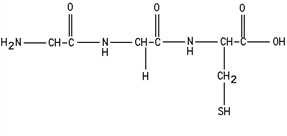
A) Dipeptide
B) Fatty acid
C) Polypeptide
D) Protein
E) Triglyceride

A) Dipeptide
B) Fatty acid
C) Polypeptide
D) Protein
E) Triglyceride

Unlock Deck
Unlock for access to all 71 flashcards in this deck.
Unlock Deck
k this deck
28
Which of these is/are polysaccharide(s)?
I. Glucose
II. Cellulose
III. Fructose
IV. Starch
A) I only
B) II only
C) II and III
D) I and II
E) II and IV
I. Glucose
II. Cellulose
III. Fructose
IV. Starch
A) I only
B) II only
C) II and III
D) I and II
E) II and IV

Unlock Deck
Unlock for access to all 71 flashcards in this deck.
Unlock Deck
k this deck
29
Classify this structure. 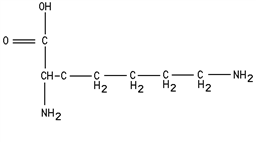
A) Polysaccharide
B) Amino acid
C) Fatty acid
D) Protein
E) Triglyceride

A) Polysaccharide
B) Amino acid
C) Fatty acid
D) Protein
E) Triglyceride

Unlock Deck
Unlock for access to all 71 flashcards in this deck.
Unlock Deck
k this deck
30
Amino acids are linked together by _____ to form proteins.
A) disulfide linkages
B) hydrogen bonds
C) alpha linkages
D) hydrophobic interactions
E) peptide bonds
A) disulfide linkages
B) hydrogen bonds
C) alpha linkages
D) hydrophobic interactions
E) peptide bonds

Unlock Deck
Unlock for access to all 71 flashcards in this deck.
Unlock Deck
k this deck
31
Which of these is /are not a monosaccharide(s)?
I. Glucose
II. Fructose
III. Sucrose
A) I only
B) III only
C) II and III
D) I and II
E) I and III
I. Glucose
II. Fructose
III. Sucrose
A) I only
B) III only
C) II and III
D) I and II
E) I and III

Unlock Deck
Unlock for access to all 71 flashcards in this deck.
Unlock Deck
k this deck
32
A long chain of more than 50 amino acids is known as _____.
A) a polysaccharide
B) a polyamide
C) a polypeptide
D) a protein
E) a polyamine
A) a polysaccharide
B) a polyamide
C) a polypeptide
D) a protein
E) a polyamine

Unlock Deck
Unlock for access to all 71 flashcards in this deck.
Unlock Deck
k this deck
33
Which of these structures is an amino acid?
A)
B)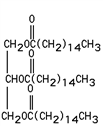
C)
D)
E)
A)

B)

C)

D)

E)


Unlock Deck
Unlock for access to all 71 flashcards in this deck.
Unlock Deck
k this deck
34
Which of these is not a property of glucose?
A) It is easily oxidized.
B) It is soluble in water.
C) It releases more energy per gram than lipids.
D) It undergoes spontaneous intermolecular cyclization.
E) It stores energy in a form that is readily transported.
A) It is easily oxidized.
B) It is soluble in water.
C) It releases more energy per gram than lipids.
D) It undergoes spontaneous intermolecular cyclization.
E) It stores energy in a form that is readily transported.

Unlock Deck
Unlock for access to all 71 flashcards in this deck.
Unlock Deck
k this deck
35
Which of these property/ properties is /are true for cellulose but not for starch?
I. It consists of a long chain of glucose molecules.
II. Its monosaccharide units are connected by beta linkages.
III. The neighboring monosaccharides form hydrogen bonds.
IV. Its polysaccharides are easily broken down by enzymes in the body.
A) II only
B) I and III
C) II and III
D) III and IV
E) II, III, and IV
I. It consists of a long chain of glucose molecules.
II. Its monosaccharide units are connected by beta linkages.
III. The neighboring monosaccharides form hydrogen bonds.
IV. Its polysaccharides are easily broken down by enzymes in the body.
A) II only
B) I and III
C) II and III
D) III and IV
E) II, III, and IV

Unlock Deck
Unlock for access to all 71 flashcards in this deck.
Unlock Deck
k this deck
36
Which of these is not an amino acid?
A) Valine
B) Aspartic acid
C) Histidine
D) Oleic acid
E) Serine
A) Valine
B) Aspartic acid
C) Histidine
D) Oleic acid
E) Serine

Unlock Deck
Unlock for access to all 71 flashcards in this deck.
Unlock Deck
k this deck
37
Classify this structure. 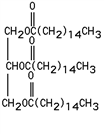
A) Dipeptide
B) Fatty acid
C) Polypeptide
D) Protein
E) Triglyceride

A) Dipeptide
B) Fatty acid
C) Polypeptide
D) Protein
E) Triglyceride

Unlock Deck
Unlock for access to all 71 flashcards in this deck.
Unlock Deck
k this deck
38
Which of these property/ properties is /are true for starch but not for cellulose?
I. It consists of a long chain of glucose molecules.
II. Its monosaccharide units are connected by beta linkages.
III. The neighboring monosaccharides form hydrogen bonds.
IV. Its polysaccharides are easily broken down by enzymes in the body.
A) IV only
B) I and III
C) II and III
D) III and IV
E) II, III, and IV
I. It consists of a long chain of glucose molecules.
II. Its monosaccharide units are connected by beta linkages.
III. The neighboring monosaccharides form hydrogen bonds.
IV. Its polysaccharides are easily broken down by enzymes in the body.
A) IV only
B) I and III
C) II and III
D) III and IV
E) II, III, and IV

Unlock Deck
Unlock for access to all 71 flashcards in this deck.
Unlock Deck
k this deck
39
All amino acids contain which functional group?
A) Carboxylic acid
B) Alcohol
C) Alkene
D) Amide
E) Alkyne
A) Carboxylic acid
B) Alcohol
C) Alkene
D) Amide
E) Alkyne

Unlock Deck
Unlock for access to all 71 flashcards in this deck.
Unlock Deck
k this deck
40
How many different amino acids are there in humans?
A) 18
B) 19
C) 20
D) 21
E) 22
A) 18
B) 19
C) 20
D) 21
E) 22

Unlock Deck
Unlock for access to all 71 flashcards in this deck.
Unlock Deck
k this deck
41
Nucleic acids are long, chainlike molecules composed of regular repeating _____.
A) nucleotides
B) amino acids
C) monosaccharides
D) proteins
E) fatty acids
A) nucleotides
B) amino acids
C) monosaccharides
D) proteins
E) fatty acids

Unlock Deck
Unlock for access to all 71 flashcards in this deck.
Unlock Deck
k this deck
42
Which of these quaternary interactions occur between nonpolar R groups?
A) Hydrogen bonds
B) Disulfide linkages
C) Salt bridges
D) Hydrophobic interactions
E) None of these
A) Hydrogen bonds
B) Disulfide linkages
C) Salt bridges
D) Hydrophobic interactions
E) None of these

Unlock Deck
Unlock for access to all 71 flashcards in this deck.
Unlock Deck
k this deck
43
Which of these is an example of a protein that acts as a hormone?
A) Hemoglobin
B) Insulin
C) Keratin
D) Lysozyme
E) Valine
A) Hemoglobin
B) Insulin
C) Keratin
D) Lysozyme
E) Valine

Unlock Deck
Unlock for access to all 71 flashcards in this deck.
Unlock Deck
k this deck
44
Which of these proteins is an antibacterial agent found in mucus and tears?
A) Hemoglobin
B) Keratin
C) Insulin
D) Lysozyme
E) Valine
A) Hemoglobin
B) Keratin
C) Insulin
D) Lysozyme
E) Valine

Unlock Deck
Unlock for access to all 71 flashcards in this deck.
Unlock Deck
k this deck
45
Which of these interactions are not characteristics of quaternary and tertiary protein structures?
A) Hydrogen bonds
B) Disulfide linkages
C) Salt bridges
D) Peptide bonds
E) Hydrophobic interactions
A) Hydrogen bonds
B) Disulfide linkages
C) Salt bridges
D) Peptide bonds
E) Hydrophobic interactions

Unlock Deck
Unlock for access to all 71 flashcards in this deck.
Unlock Deck
k this deck
46
Which of these determines the tertiary structure of a protein?
A) Sequence of amino acids
B) Ratio of the number of acidic amino acids to the number of basic amino acids
C) Number of alpha helices and pleated sheets along the axis of the protein
D) Number of carbon bonds in the chain of amino acids
E) Interactions between amino acids separated by significant distances on the protein chain
A) Sequence of amino acids
B) Ratio of the number of acidic amino acids to the number of basic amino acids
C) Number of alpha helices and pleated sheets along the axis of the protein
D) Number of carbon bonds in the chain of amino acids
E) Interactions between amino acids separated by significant distances on the protein chain

Unlock Deck
Unlock for access to all 71 flashcards in this deck.
Unlock Deck
k this deck
47
Which of these represents the three primary components of a nucleotide?
A) Phosphate, sugar, base
B) Phosphate, acid, base
C) Amine, acid, phosphate
D) Amine, aldehyde, base
E) None of these
A) Phosphate, sugar, base
B) Phosphate, acid, base
C) Amine, acid, phosphate
D) Amine, aldehyde, base
E) None of these

Unlock Deck
Unlock for access to all 71 flashcards in this deck.
Unlock Deck
k this deck
48
Which of these techniques is used to separate DNA fragments in recombinant DNA experiments?
A) Hydrophilic precipitation
B) Ionic chromatography
C) Gel electrophoresis
D) Selective filtration
E) Enzyme cleavage
A) Hydrophilic precipitation
B) Ionic chromatography
C) Gel electrophoresis
D) Selective filtration
E) Enzyme cleavage

Unlock Deck
Unlock for access to all 71 flashcards in this deck.
Unlock Deck
k this deck
49
Which of these proteins acts as an enzyme?
A) Hemoglobin
B) Insulin
C) Keratin
D) Lysozyme
E) Actin
A) Hemoglobin
B) Insulin
C) Keratin
D) Lysozyme
E) Actin

Unlock Deck
Unlock for access to all 71 flashcards in this deck.
Unlock Deck
k this deck
50
Which of these is not an application of genetic engineering?
A) Insulin production
B) Spoilage-resistant plants
C) Beef-producing cow
D) Cloning
E) Organic farming
A) Insulin production
B) Spoilage-resistant plants
C) Beef-producing cow
D) Cloning
E) Organic farming

Unlock Deck
Unlock for access to all 71 flashcards in this deck.
Unlock Deck
k this deck
51
Proteins are synthesized in a structure called a(n) _____.
A) mRNA
B) Codon
C) tRNA
D) DNA
E) Ribosome
A) mRNA
B) Codon
C) tRNA
D) DNA
E) Ribosome

Unlock Deck
Unlock for access to all 71 flashcards in this deck.
Unlock Deck
k this deck
52
The alpha helix structure is a _____ structure of proteins.
A) primary
B) secondary
C) tertiary
D) quaternary
E) parent
A) primary
B) secondary
C) tertiary
D) quaternary
E) parent

Unlock Deck
Unlock for access to all 71 flashcards in this deck.
Unlock Deck
k this deck
53
Which of these quaternary interactions result from acid-base reactions occurring between acidic and basic R groups?
A) Hydrogen bonds
B) Disulfide linkages
C) Salt bridges
D) Hydrophobic interactions
E) None of these
A) Hydrogen bonds
B) Disulfide linkages
C) Salt bridges
D) Hydrophobic interactions
E) None of these

Unlock Deck
Unlock for access to all 71 flashcards in this deck.
Unlock Deck
k this deck
54
The process in which DNA unwinds and creates two identical daughter DNA strands is known as _____.
A) coding
B) translation
C) replication
D) transcription
E) cloning
A) coding
B) translation
C) replication
D) transcription
E) cloning

Unlock Deck
Unlock for access to all 71 flashcards in this deck.
Unlock Deck
k this deck
55
Which of these forces hold the secondary structure of a protein together?
A) Ionic bonds
B) Hydrogen bonds
C) Disulfide linkages
D) Peptide bonds
E) Phosphate-sugar residues
A) Ionic bonds
B) Hydrogen bonds
C) Disulfide linkages
D) Peptide bonds
E) Phosphate-sugar residues

Unlock Deck
Unlock for access to all 71 flashcards in this deck.
Unlock Deck
k this deck
56
Choose the correct complementary DNA strand for GCTATAC.
A) ATCGCGC
B) CGATATG
C) TUBCGCU
D) UTCGCGT
E) GCTATAC
A) ATCGCGC
B) CGATATG
C) TUBCGCU
D) UTCGCGT
E) GCTATAC

Unlock Deck
Unlock for access to all 71 flashcards in this deck.
Unlock Deck
k this deck
57
Which of these proteins acts as an oxygen carrier?
A) Hemoglobin
B) Lysozyme
C) Keratin
D) Insulin
E) None of these
A) Hemoglobin
B) Lysozyme
C) Keratin
D) Insulin
E) None of these

Unlock Deck
Unlock for access to all 71 flashcards in this deck.
Unlock Deck
k this deck
58
Which of these determines the quaternary structure of a protein?
A) Sequence of amino acids
B) Ratio of the number of acidic amino acids to the number of basic amino acids
C) Number of alpha helices and pleated sheets along the axis of the protein
D) Arrangement of subunits of amino acids that are held together by attractions between the chains
E) Arrangement of pleated sheets in the protein
A) Sequence of amino acids
B) Ratio of the number of acidic amino acids to the number of basic amino acids
C) Number of alpha helices and pleated sheets along the axis of the protein
D) Arrangement of subunits of amino acids that are held together by attractions between the chains
E) Arrangement of pleated sheets in the protein

Unlock Deck
Unlock for access to all 71 flashcards in this deck.
Unlock Deck
k this deck
59
Which of these forces hold the two complementary strands of DNA together?
A) Hydrogen bonds
B) Disulfide linkages
C) Salt bridges
D) Hydrophobic interactions
E) Peptide bonds
A) Hydrogen bonds
B) Disulfide linkages
C) Salt bridges
D) Hydrophobic interactions
E) Peptide bonds

Unlock Deck
Unlock for access to all 71 flashcards in this deck.
Unlock Deck
k this deck
60
Which of these substances is used in recombinant DNA technology to cut DNA at specific locations in the nucleotide sequence?
A) mRNA
B) Codon
C) Ribosome
D) Restriction enzyme
E) Lysozyme
A) mRNA
B) Codon
C) Ribosome
D) Restriction enzyme
E) Lysozyme

Unlock Deck
Unlock for access to all 71 flashcards in this deck.
Unlock Deck
k this deck
61
Which of these represent(s) patterns found in the secondary structures of proteins?
I. Alpha helix
II. Globular
III. Pleated sheet
IV. Fibrous
A) I only
B) I and II
C) II and IV
D) I and III
E) I, III and IV
I. Alpha helix
II. Globular
III. Pleated sheet
IV. Fibrous
A) I only
B) I and II
C) II and IV
D) I and III
E) I, III and IV

Unlock Deck
Unlock for access to all 71 flashcards in this deck.
Unlock Deck
k this deck
62
Arrange these steps associated with protein synthesis in the correct order.
I. Protein detaches from the ribosome.
II. DNA unwinds to expose the sequence.
III. mRNA transfers the code to the ribosome.
IV. tRNA fits the correct amino acid sequence together
A) I, II, III, IV
B) II, III, IV, I
C) II, IV, III, I
D) II, I, III, IV
E) III, IV, II, I
I. Protein detaches from the ribosome.
II. DNA unwinds to expose the sequence.
III. mRNA transfers the code to the ribosome.
IV. tRNA fits the correct amino acid sequence together
A) I, II, III, IV
B) II, III, IV, I
C) II, IV, III, I
D) II, I, III, IV
E) III, IV, II, I

Unlock Deck
Unlock for access to all 71 flashcards in this deck.
Unlock Deck
k this deck
63
Choose the correct complementary DNA strand for TGTACG?
A) CACGTC
B) CACGTA
C) ACATGC
D) UTCGCG
E) GCTATA
A) CACGTC
B) CACGTA
C) ACATGC
D) UTCGCG
E) GCTATA

Unlock Deck
Unlock for access to all 71 flashcards in this deck.
Unlock Deck
k this deck
64
Chains of amino acids with 50 units or fewer are called _____.
A) polysaccharides
B) polypeptides
C) proteins
D) polyamides
E) polyamines
A) polysaccharides
B) polypeptides
C) proteins
D) polyamides
E) polyamines

Unlock Deck
Unlock for access to all 71 flashcards in this deck.
Unlock Deck
k this deck
65
Which of these scientists are credited with discovering the structure of DNA?
A) Watson and Crick
B) Fermi and Einstein
C) Bohr and Pauli
D) Mendeleev and Dalton
E) Schrodinger and Heisenberg
A) Watson and Crick
B) Fermi and Einstein
C) Bohr and Pauli
D) Mendeleev and Dalton
E) Schrodinger and Heisenberg

Unlock Deck
Unlock for access to all 71 flashcards in this deck.
Unlock Deck
k this deck
66
Which of these proteins composes hair and wool?
A) Hemoglobin
B) α-keratin
C) Lysozyme
D) Insulin
E) None of these
A) Hemoglobin
B) α-keratin
C) Lysozyme
D) Insulin
E) None of these

Unlock Deck
Unlock for access to all 71 flashcards in this deck.
Unlock Deck
k this deck
67
_____ are substances that regulate metabolic processes within the body.
A) Hormones
B) Enzymes
C) Fats
D) Lipids
E) Amines
A) Hormones
B) Enzymes
C) Fats
D) Lipids
E) Amines

Unlock Deck
Unlock for access to all 71 flashcards in this deck.
Unlock Deck
k this deck
68
Which of these proteins is responsible for muscle contraction?
A) Lysosome
B) Insulin
C) Actin
D) Hemoglobin
E) Keratin
A) Lysosome
B) Insulin
C) Actin
D) Hemoglobin
E) Keratin

Unlock Deck
Unlock for access to all 71 flashcards in this deck.
Unlock Deck
k this deck
69
Which of these is not a base found in DNA?
A) Adenine
B) Guanine
C) Cytosine
D) Tyrosine
E) Thymine
A) Adenine
B) Guanine
C) Cytosine
D) Tyrosine
E) Thymine

Unlock Deck
Unlock for access to all 71 flashcards in this deck.
Unlock Deck
k this deck
70
The portion of the DNA that specifies the sequence of a particular protein is known as a(n) _____.
A) chromosome
B) codon
C) nucleotide
D) mRNA
E) gene
A) chromosome
B) codon
C) nucleotide
D) mRNA
E) gene

Unlock Deck
Unlock for access to all 71 flashcards in this deck.
Unlock Deck
k this deck
71
_____, a structural material of plants and trees, is a common polysaccharide.
A) Glucose
B) Fructose
C) Sucrose
D) Cellulose
E) Galactose
A) Glucose
B) Fructose
C) Sucrose
D) Cellulose
E) Galactose

Unlock Deck
Unlock for access to all 71 flashcards in this deck.
Unlock Deck
k this deck


